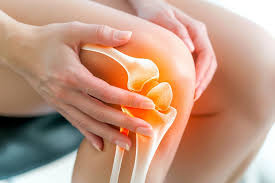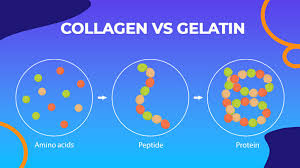
The Role of Collagen in Joint Health and Mobility
Joints are what make our bodies move the way we want them to. This is something we’ve all learnt in school, yet it’s something most of us don’t take seriously as we should. Joint health and mobility are essential in maintaining an active and fulfilling lifestyle, as you can keep doing your favorite activities for as long as possible. However, joint health is also quite fragile compared to other bodily functions, as it can be affected by age or other medical conditions.
Collagen is an essential protein that plays an important role in ensuring joint health and optimal mobility. You must have read or heard about hair growth supplements for men and women, or even skin whitening capsules for the face. Chances are that most of these will be collagen based. Collagen supplements have become widely popular, especially among people who take their health and wellness seriously. So what is collagen? Let’s find out!
Collagen
One of the most essential and abundantly found proteins in the human body, collagen makes up one-third of the protein content. It has a huge number of benefits, and acts as a building block for bones, ligaments, muscles, skin and tendons. There are at least 16 different types of collagen, but the top four found in the body are Type I, Type II, Type III and Type IV, all having their own role in maintaining bodily upkeep. Type II is the one to look out for, if you’re looking for better joint health as it is a major component of cartilage.
Collagen and how it helps joint health and mobility
Collagen is inarguably quite important for joint health, as can be seen from the multiple functions below:
1. Structural integrity and support
Cartilage is the tissue which protects the long ends of the joints and collagen is a major component of cartilage, giving it the elasticity and strength that it requires. This makes it easier for the joints to handle movements for longer, thus providing the required integrity and support.
2. Reduction of inflammation
Inflammation, or chronic inflammation in particular is one of the most common causes of stiff joints and joint pain. If you’ve woken up with a stiff knee or elbow, it’s probably because of some sort of inflammation. Collagen, among its many other functions, also has anti-inflammatory properties which can help reduce the inflammation in the joints.
3. Joint lubrication
On a daily basis, cartilage undergoes constant movement. Even the smallest of movements we make require joint movement, and this constant use can lead to wear and tear over time. Hence, adequate lubrication becomes quite important and this is where collagen comes in. Collagen helps in the production of synovial fluid, which lubricates the joints and improves mobility.
4. Tissue repair and regeneration
Collagen is also quite essential in stimulating the production of other proteins and compounds that play a part in tissue repair. This function becomes even more important in case of an injury.
How collagen supplements can help
With as many functions and more as are listed above, collagen is clearly highly important for the body. However, as the body starts getting older, its ability to produce collagen naturally decreases. To supplement this decrease in collagen, supplements have gained popularity. There’s tons of supplements which are available, such as collagen capsules for hair growth, skin brightening capsules and even as specific as skin whitening capsules for the face. Similarly, collagen supplements can also help in supporting joint health and mobility. It can help provide pain relief, help improve mobility, help in the regeneration of cartilage and also help reduce joint stiffness. So the next time you hear one of your family members complain about joint pain, you know what to recommend!
Sources of collagen
Collagen supplements are always a good option, but they’re not the only one. There’s also other equally helpful options for collagen intake into the body. So before you go look for hair growth supplements for women or skin whitening capsules for women on the internet, have a look at all the options you could try out.
1. Incorporating it into your diet
Collagen rich foods such as bone broth, chicken, fish and egg whites are easy to find and easy to add to your diet. Bone broth especially is high in gelatin, a type of collagen that is more easily usable.
2. Supplements
Supplements like hair growth supplements for men and skin whitening capsules are available easily. Collagen supplements are available in various forms like capsules, tablets and powders. Hydrolyzed collagen is broken down into collagen peptides and used in the supplements, as it is more easily absorbed in the body.
3. Vitamin C
Vitamin C is important for collagen synthesis in the body. Including vitamin-c rich foods into your diet can thus help boost collagen production. What makes it better is that most of the vitamin-c rich foods are delicious berries, citrus fruits and leafy greens.
4. Gelatin
Gelatin is a cooked form of collagen that is found in our favorite jellies and desserts. There are certain gelatin supplements that are available as well and can boost collagen intake.
While collagen supplements are generally quite safe to use, in the rarest of cases some people might face certain side effects. It’s best to take any supplement in moderation. Start off slow with smaller amounts and then increase the dosage up to what is considered normal. As a general practice, it’s always best to consult your family doctor or preferred health professional before starting any supplement, right from vitamin capsules for hair growth to skin whitening capsules for face. It’s always better to be safe, as they say! Checkout some verified and reliable collagen supplements on the Your Happy Life website or other known retailers like Nykaa and Amazon.


